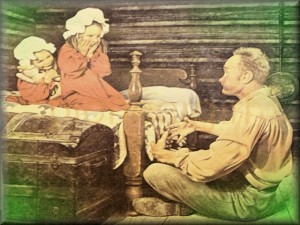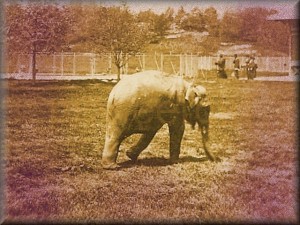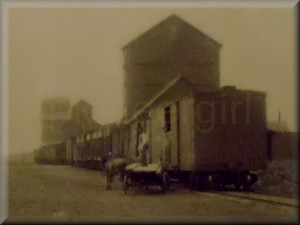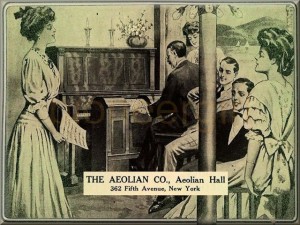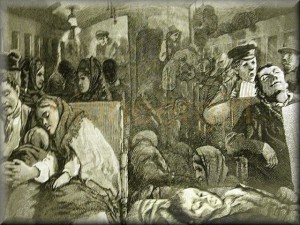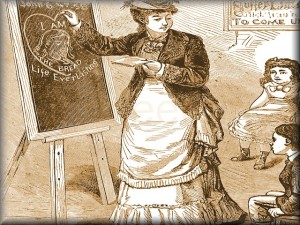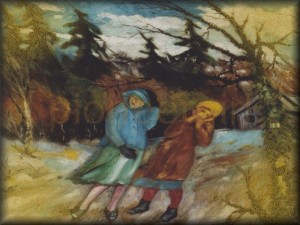E

The second vowel and the fifth letter of the English alphabet. It occurs more frequently in the words of the language than any other letter of the alphabet. It has two principal sounds, the long, as in me, and the short, as in met; also, several occasional sounds. — Webster, 1882
Click on an image below to learn more.
Wait, there’s more!
The following is an incomplete list of the remaining indexed main headings. Once a completed entry has been uploaded, it will be removed from the list below and added to the links above. Subheadings, reference locators, and cross-referenced subentries are not included in this list. Always consult the completed entry for referenced source of definition used below.
ear flap / ear-flap / earlaps – Earlap is the tip of the ear. In headwear, a hat with projections that cover and protect the ears.
ear muff / ear-muff – Soft fabric or fur coverings for the ears to protect them from cold.
earth – The solid materials which make up the globe, in distinction from the air or water; the dry land. The loose particles of inorganic matter on the surface of the glove, in distinction from the firm rock; soil of all kinds, including gravel, clay, loam, and the like; sometimes, soil favorable to the growth of plants; the ground, as, loose earth; rich earth.
the East – The point in the heavens where the sun is seen to rise at the Equinox, or the corresponding point on the earth; that one of the four cardinal points of the compass which is in a direction at right angles to that of north and south, and which is toward the right hand of one who faces the north; the point directly opposite to the west. Toward the rising sun; or toward the point where the sun rises when in the equinoctial; as the east gate; the east border; the east side.
eaves – The edges or lower borders of the roof of a building, which overhang the walls, and cast off the water that falls on the roof.
egg, hen – A spheroidal body formed in the female of animal species, containing the germ of a new individual of the species, within a shell or firm membrane. The shell also contains more or less of yolk, and within in the yolk what is called the germinal vesicle, or germ-cell. Part of the yolk (or all, when there is but little, as in the mammals) is used in the first steps of development, and the rest, along with the white, if any exists, in the subsequent growth of the embryo. The membrane enveloping the yolk is the vitelline membrane. The germinal vesicle has its nucleal spot, or germinal dot. In a later stage the egg contains the embryo in a state of development.
egg-nog – A drink consisting of eggs beaten up with sugar, milk, and wine or spirits.
Egypt – The lower portion of the Nile valley, extending from the coast of the Mediterranean up to the First Cataract. It is bound by the Mediterranean Sea on the north, by Nubia on the south, by the Red Sea on the east, and desert on the west.
electric – Pertaining to electricity; as, electric power or virtue. Occasioned by or derived from electricity; as, electric effects; an electric spark. Containing electricity; as, an electric jar. Capable of occasioning electrical phenomena; as, an electrical machine or substance.
electricity – A power in nature, often styled the electric fluid, exhibiting itself when in disturbed equilibrium or in activity by a circuit movement, the fact of direction in which involves polarity, or opposition for many substances, by a law involving attraction between surfaces of unlike polarity, and repulsion between those of like; by exhibiting accumulated polar tension when the circuit is broken; and by producing heat, light, concussion, and often chemical changes when the circuit passes between the poles or through any imperfectly conducting substance or space. It is evolved in any disturbance of molecular equilibrium, whether from a chemical, physical, or mechanical cause.
elk – A quadruped of the stag kind, with very large, spreading, branched or palmate horns. Cervus Canadensis is the American elk of the northern United States.
elm, tree– A tree of the genus Ulnus, of several species, much employed as a shade tree, particularly in America. The common American elm is Ulnus Americana.
El Manzoor – Used in explanation of Almanzo’s name as a variation of El Manzoor, a family story being that a person by that name saved a Wilder ancestor’s life during the Crusades, and the name honored him. Mansour is a common Arabic name; el is the common article the.
embroidery – Work in gold, silver, silk, or other thread, formed by the needle on cloth, stuffs, and muslin, into various figures; variegated needlework.
emigrant – One who removes his habitation, or quits one country or region to settle in another.
engaged – Pledged; promised; especially, having the affections pledged; promised in marriage; affianced; betrothed.
engineer – One who manages an engine; an engine-driver. Especially, one who controls or directs motion by means of an engine, as a locomotive, steamboat, and the like.
England – Part of Great Britain, along with Wales and Scotland. England is bounded on the north by Scotland; on the south by the English Channel; on the east by the North Sea or German Ocean; and on the west by the Irish Sea, Wales, and the Atlantic Ocean. – Philips’ Geography, 1882.
English – Belonging to England, or to its inhabitants. The people of England. The language of England or of the English nation, and of their descendants in India, America, and other countries.
estate – The fixed condition of any thing or person; the subjective state; hence, the circumstance under which a thing or person stands; fixedness; condition; rank; state; position; welfare.
Europe – Continent of the eastern hemisphere between Asia & the Atlantic.
exasperate – To irritate in a high degree; to provoke; to enrage; to excite or to inflame the anger of; as, to exasperate a person or his passions.
expelled – To cut off from farther connection with an institution of learning, a society, and the like; as, to expel a student or member.



